Cycling can be fickle! Often, you can cycle for hours and have the energy to saddle forever. At the same time, you could only go a 20-mile mark with no energy left.
You won't perform optimally or go a long distance if there's nothing to fuel your body. You have to give your body the appropriate fuel when cycling long distances.
If you wouldn't wish to get in a bad limb or have a miserable leg feeling, read on to see what to eat when cycling long distances.
What To Eat When Cycling Long Distance:
Research reveals that having a meal before 1 hour of cycling offers the optimal or best result. Eating a meal with water and sports drinks is vital for energy supply and body hydration for your body.
Thus, a pre-ride meal with fluids to improve energy production and digestion is mandatory for your cycling long distance. What to eat when cycling for a long-distance include:
1. Peanut Butter and Jelly:
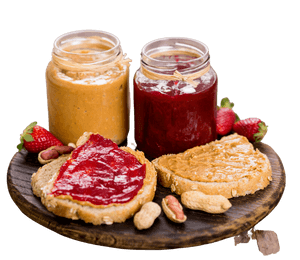
The combination of Peanut butter and Jelly is a perfect snack for cycling long distances. In other words, it helps you to pedal long distances.
This combination has proteins, carbs, and fat. To Eat it, spread it on tortillas or toasts and make rolls and sandwiches with it.
In particular, the combination has 12.5 g of carbs that quickly boost your energy.
Interestingly, the peanut butter goes down and digests slowly. The fat content offers a continuous energy supply. You can take it before cycling or even eat during your ride. You can try almond butter if you can't eat peanuts.
2. Bananas:

Even though bananas might not make you smarter, it's a proven energy food; it acts as a natural energy bar.
Banana has healthy fibers and carbohydrates that release energy slowly, especially when it's not too ripe.
It equally has vitamin B6 that's vital for protein metabolism. It's high in potassium that helps to restore lost electrolytes. And it's simple to eat and digest.
Bananas are a great food to take before, during, and even after long cycling. You can take it in shakes, smoothies, or porridge.
3. Dates:
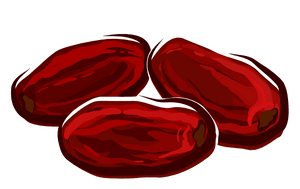
Dates have 80% sugar content and are like an energy bomb that offers a healthy source of carbohydrates.
Its sugar is usually fructose, glucose, and small maltose and sucrose.
Dates have various types of sugars that enhance cyclists' performance. It provides an immediate and steady boost of energy. It has potassium, copper, and magnesium that help replace your lost electrolytes.
It's vital to say that only two or one date at a time is okay during cycling.
4. Fish:

Fish has its benefits for long-distance cycling. It's a low-calorie that's high in omega-3 fatty acids known to lower bad cholesterol, promote heart health, and lessen blood pressure levels.
Significantly, Omega-3 fish oil reduces inflammation and pain in cycling injuries. Omega-3 equally penetrates the muscle cells to prevent damage.
A 2008 study published in the Journal of Cardiovascular revealed that "the cyclist who took in omega-3 fish oil found it easier to perform the task well, needed less oxygen and maintained a lower heart rate throughout the test.”
Note: to enjoy this fish meal, ensure to add some healthy portions of vegetables and carbohydrates.
5. Potatoes:

Potatoes contain low-burning carbs that give enough energy during long cycling.
Research reveals that potato purée is an effective energy gel. In particular, every 2 sweet potatoes offer 100 to 120 calories. That's close to a gel sachet.
Potatoes are a popular food for cyclists because they can keep the stomach full and prevent the pangs of hunger. It equally has beta-carotene that's great for recovery.
To enjoy potatoes for cycling long distances, peel boiled potatoes and add salt to make a nice energy booster.
6. Pistachios:
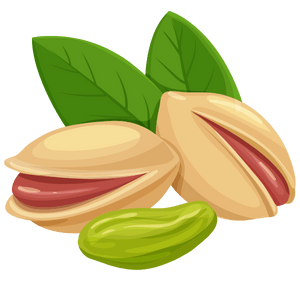
Pistachios are a delicious meal for cycling long distances. They're rich in protein and minerals like copper, potassium, manganese, vitamin B6, and phosphorus.
These nutrients, with low-fat content, make Pistachios a great meal for enhancing muscle strength.
They're equally rich in antioxidants that fight inflammation and cell damage responsible for swelling and muscle soreness. Pistachios have high amounts of electrolytes, about 290 mg per meal.
Note; to save time, ensure to use the shelled version.
7. Sports Gels
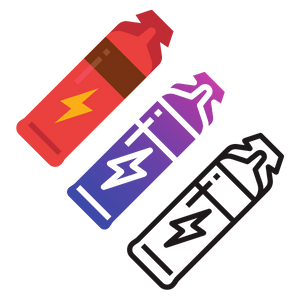
Sports gels are becoming popular in the cyclist world.
They're the best source of energy for riders. Also, they're simple to digest and carry; you can put them in your jersey pockets.
Sport gels have enough carbs that can quickly boost your energy and restore or replace the utilized glycogen in muscles. Further, they can have electrolytes or caffeine.
Meanwhile, most gels contain about 15–25g of carbs. Thus, you should take 2 to 3 sachets per hour during long-distance cycling.
Note: hydrate well after and before consuming gels to avoid issues like bloating, nausea, diarrhea, and cramping.
8. Sandwiches:
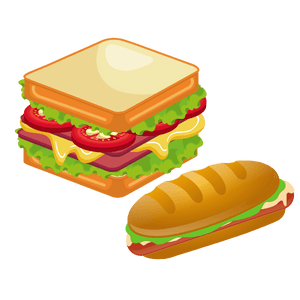
You may want to take low-fat Sandwiches to enjoy your cycling long distance. They're a nice choice and simple to make. They fill for longer periods.
You can make different sandwiches based on your needs with diverse ingredients and bread.
For instance, you can add ham, turkey, cream cheese, peanuts, avocados, and even salts for lost electrolytes. You can replace peanuts with almond butter to enjoy fat benefits.
Ensure to use less likely to spoil ingredients. You can carry sandwiches for long periods in jersey pockets or a backpack. Or eat them before cycling.
9. Energy or Sports Drinks:
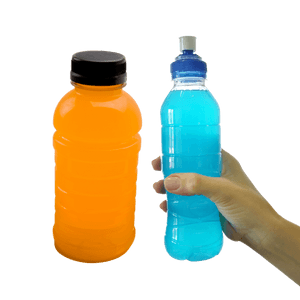
Energy drinks elevate alertness and energy levels. They have ingredients like vitamins B, sugar, amino acid derivations, caffeine, and herbal extracts.
Energy drink sugar content works as a quick energy source for riders after exhausting all their body stores.
For sports drinks, they have electrolytes; they have minerals like calcium, potassium, magnesium, and sodium that maintain the balance of fluids in the body.
You'll lose electrolytes after sweat during long cycling; however, sports drinks work to compensate or restore it.
Further, Sports drinks have enough carbs that can replace the lost carbs while cycling.
10. Coffee:

Caffeine for coffee is a booster of alertness. It helps the cyclist to concentrate while reducing fatigue. It increases endurance and makes pedal easier for long periods.
According to research, about 3-6 milligrams of caffeine for each body weight kilogram is enough for people to get improved performance.
Higher doses might cause side effects.
Note; it takes caffeine about 60 minutes to have an impact on your body. Thus, the appropriate time for taking a coffee is an hour before your cycling.
You can add it to your morning meal.
Final Analysis:
Cycling long-distance needs an appropriate intake of carbohydrates, proteins, fats, and water. However, you shouldn't go overboard with them.
Carbs are the best energy reservoir. Enough amount of carb before cycling can be enough for 90 minutes of pedaling.
Foods like potatoes, pasta, bread, and rice have high carbs. They supply the needed energy for a long cycling time.
Fats are another vital energy source that begins burning after you use all your body's glycogen reserves.
You can take healthy unsaturated fats like 6 fats and omega 3, with seeds, nuts, fish, avocados, and flaxseed oil.
More so, the intake of protein is vital. It can increase glycogen storage and boosts your pedaling energy. Ilana Muhlstein research revealed that protein is essential for long-lasting stamina.
Hydrating is an important requirement for long-distance cycling. You might lose 4 to 8 liters of water during a long ride via sweating.
Thus, replace it by taking enough fluids to prevent energy loss and dizziness.
Though water is usually a good option, you may want to take sports drinks. They're an important option.
